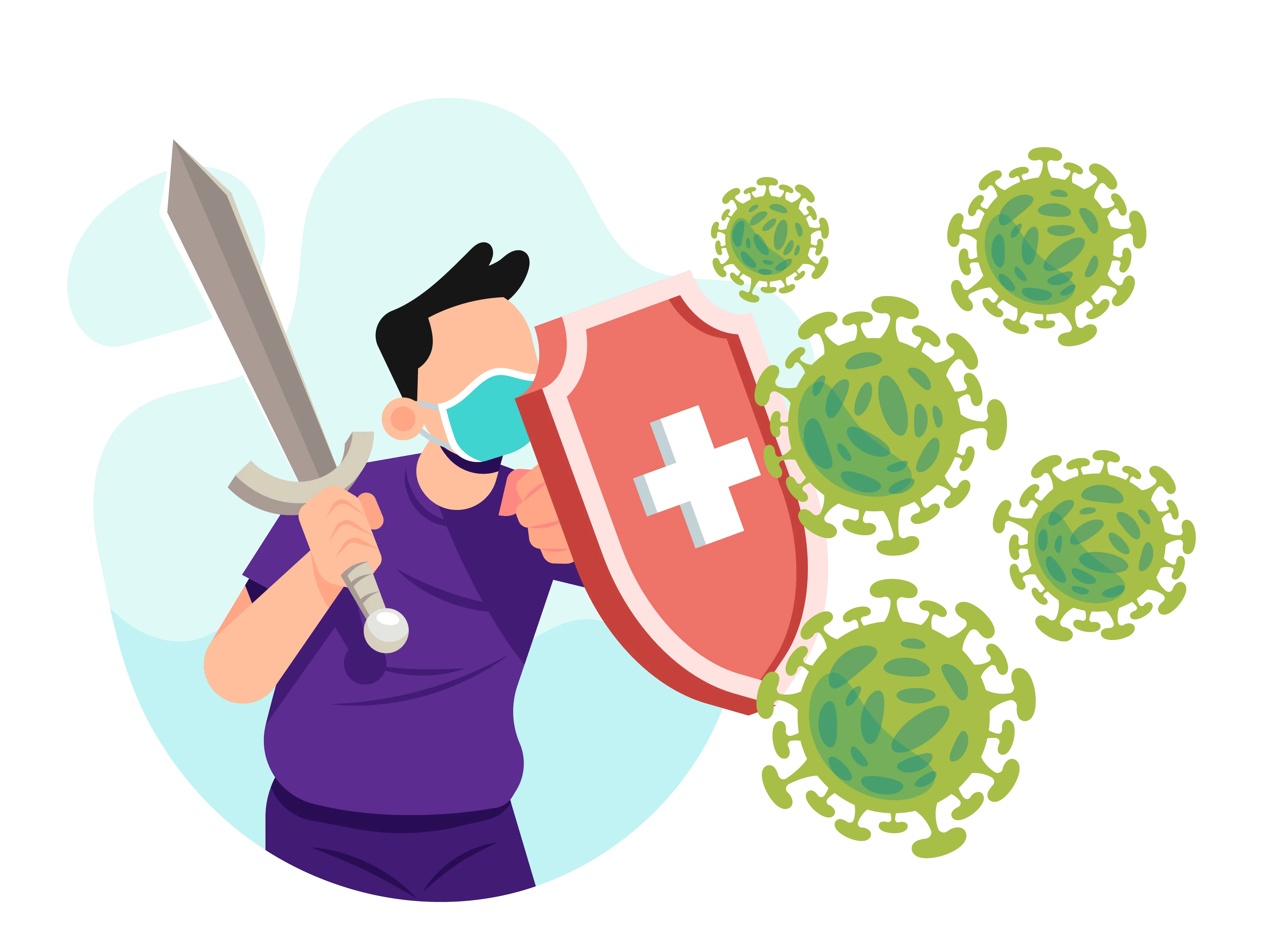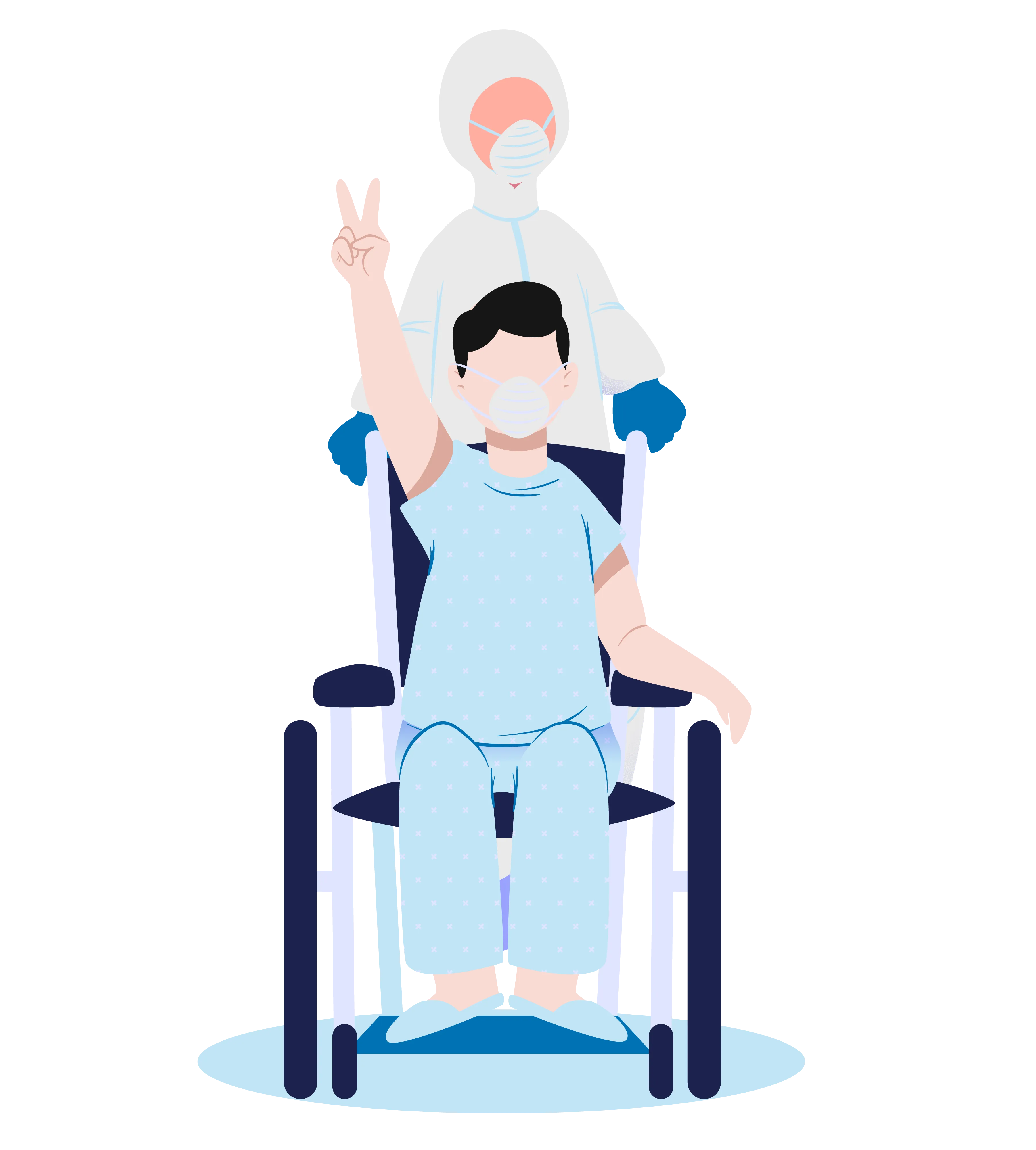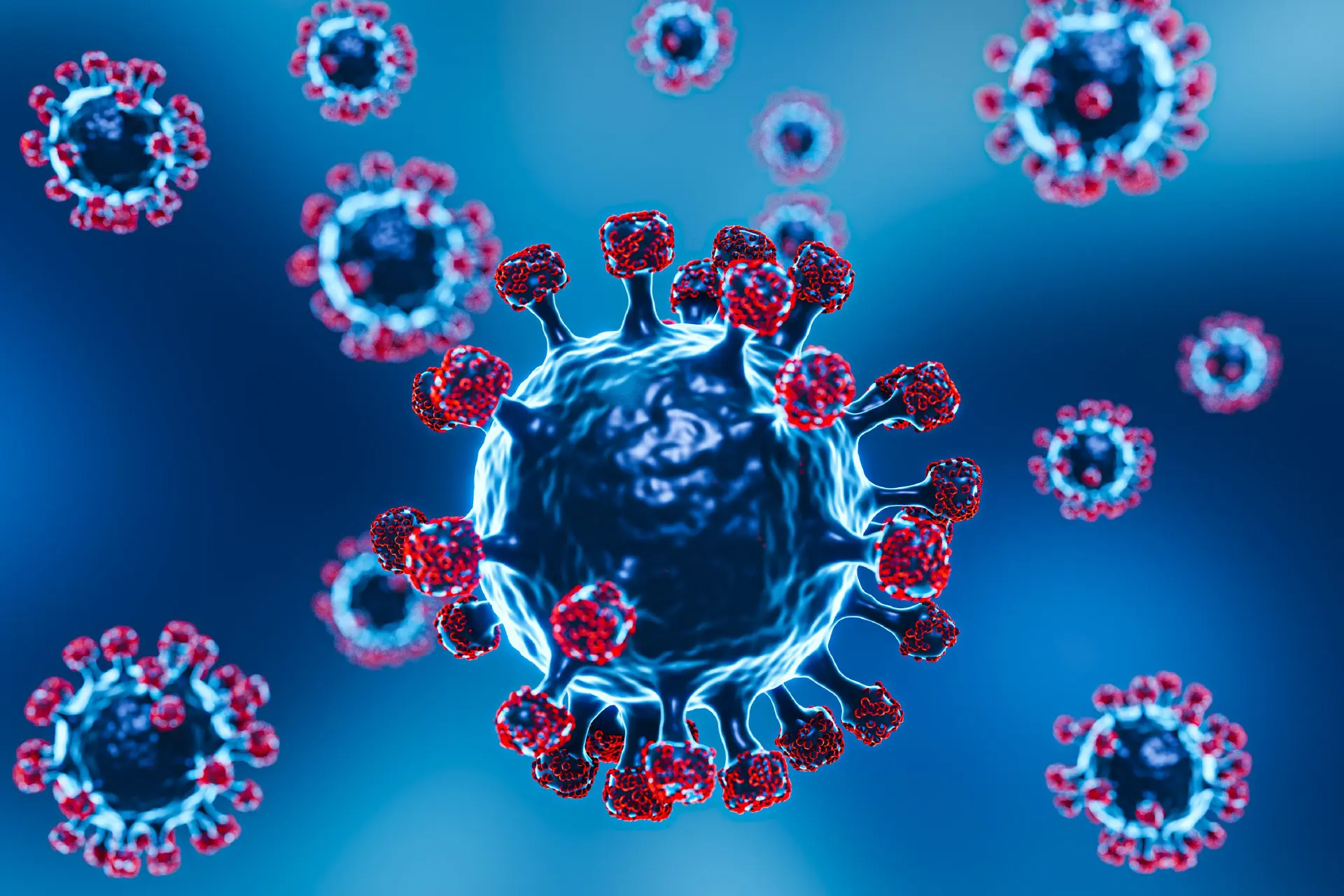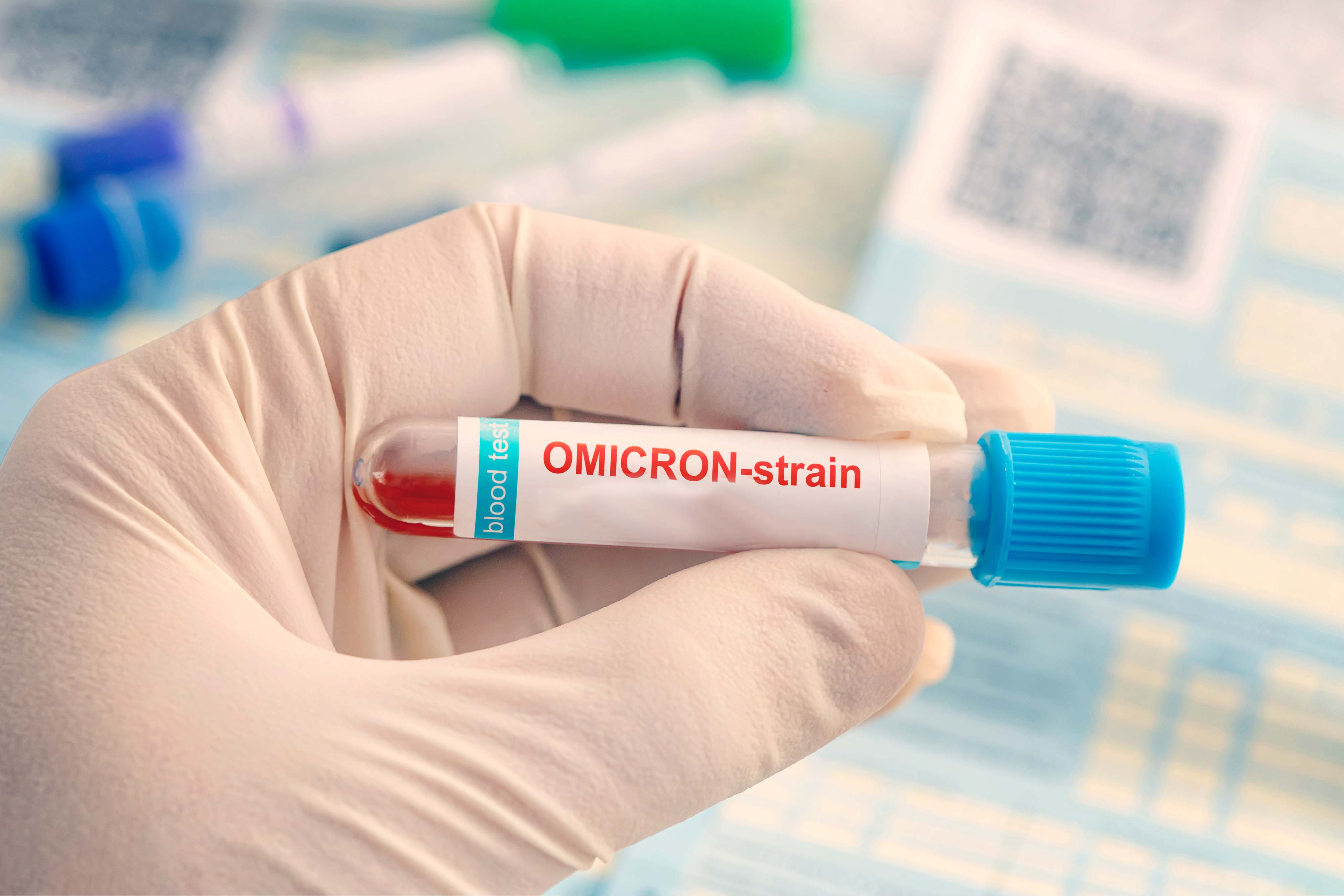Dentist | 4 min read
Coronavirus Reinfection: An Important Guide To How Long Your Immunity Lasts
Medically reviewed by
Table of Content
Key Takeaways
- The severity of a coronavirus reinfection is less and rare.
- Natural immunity may last longer than vaccine-induced.
- Vaccination can help in preventing COVID-19 spread.
The second wave of the COVID-19 pandemic turned out to be even more serious than the first one. While the first wave mostly affected adults, it was the younger generation that fell prey to this deadly disease during the second wave. Though vaccination may help in preventing COVID-19 spread, it is unclear if vaccines can stop coronavirus reinfection. However, the possibility of reinfection after getting vaccinated is low. In case you contract the infection, the severity is also less [1]. It is essential that you follow protocols and take necessary precautions when you step out of your house despite being vaccinated.
Reinfection by coronavirus means that a person who has contracted the disease once develops it again. However, studies are not able to ascertain the cause for coronavirus reinfection yet. To know more about corona immunity duration and how you develop immunity against coronavirus, read on.

Understanding the coronavirus infection
COVID-19 is an infection caused by a coronavirus. This originated in December 2019 in China, after which WHO identified the causative organism as SARS-CoV-2. A respiratory tract infection, COVID-19 mainly affects your lungs, nose, throat, sinuses and windpipe. Being a communicable disease, it spreads from one person to the other through small respiratory droplets [2].
When a person sneezes, these droplets can get settled on nearby surfaces. If those are plastic or metal surfaces, coronavirus can last up to 3 days. The coronavirus infection duration in individuals is 10 days after the onset of symptoms [3]. Therefore, it is essential to wash your hands properly and use hand sanitizers.
Some of the notable symptoms of COVID-19 include the following.
- Sore throat
- Feeling short of breath
- Fever
- Body aches
- Cough
- Loss of taste or smell
- Fatigue
- Nausea
Though most cases are mild, there are chances that COVID-19 can cause serious complications. There is a higher risk for you to contract it if you are diagnosed with any preexisting health conditions like obesity, COPD, type 2 diabetes, asthma, and liver diseases.
Additional read: Your Comprehensive Guide to the COVID-19 Virus
How your natural immune system works against coronavirus
When the virus attacks your immune system, the cells and proteins retain a memory of it. The second time a similar pathogen invades, your immune system destroys it. On entering your body, B cells (a type of lymphocyte) produces antibodies. Antibodies are proteins that are capable of identifying pathogens like viruses.
These B cells along with the help of other lymphocytes, T cells, recognize and destroy pathogens. Whenever your body needs antibodies, B cells produce them. This is how your immune system responds when coronavirus enters your body. If you have been previously affected with COVID-19, your body contains antibodies produced by B cells. Therefore, coronavirus reinfection is not very frequent as your body recognizes the pathogen and immediately attacks it when it re-enters.
What is your body’s response to vaccination?
Vaccines work by providing immunity to the body against coronavirus without getting infected by the virus. Most vaccines require two shots or doses spaced apart for the body to develop antibodies against the pathogen. After vaccination, it takes some weeks for your body to produce T and B cells. During this period, there are chances that you may acquire the infection
until your body is able to fight the virus. Like natural immunity, vaccine-induced immunity also supplies B and T cells that are able to retain a memory of the pathogen to fight it in the future.
Additional read: Covishield vs Sputnik vs Covaxin or Pfizer? Major Differences and Important Tips
How long does immunity against coronavirus last?
Studies reveal that cells in the bone marrow are capable of retaining a memory of the pathogen. These memory cells can produce antibodies in order to prevent coronavirus reinfection [4]. Another study also hinted at the fact that these memory cells can strengthen themselves post-infection for about a year [5].
Immunity induced by COVID-19 infection may last longer as opposed to vaccine-induced immunity. However, research is underway to confirm how long immunity lasts against this virus. Even if you have contracted the infection, it is better to vaccinate yourself in order to improve your immunity.
Though only a few cases of reinfection by coronavirus have been reported, it is essential to take precautionary measures such as following social distancing, wearing masks while stepping out, and avoiding crowded places. Whether you are vaccinated or have contracted the disease, make sure to follow these directions. To address symptoms or clear your doubts about COVID-19, book an appointment with specialists on Bajaj Finserv Health. Get yourself tested as frequently as you need to and keep your worries at bay
References
- https://transformingindia.mygov.in/covid-19/?sector=fact-check&type=en#scrolltothis
- https://www.gavi.org/vaccineswork/what-is-covid-19-and-how-does-it-spread
- https://www.cdc.gov/coronavirus/2019-ncov/hcp/duration-isolation.html#:~:text=Assessment,-Duration%20of%20Isolation&text=Available%20data%20indicate%20that%20adults,10%20days%20after%20symptom%20onset
- https://www.nature.com/articles/s41586-021-03647-4 5.
- https://www.biorxiv.org/content/10.1101/2021.05.07.443175v1.abstract
- https://www.narayanahealth.org/blog/can-you-get-reinfected-by-covid19/
- https://www.healthline.com/health-news/will-covid-19-vaccines-give-lifelong-immunity-to-the-disease-what-we-know#The-bottom-line
- https://www.healthline.com/health-news/how-long-does-immunity-last-after-covid-19-what-we-know
- https://timesofindia.indiatimes.com/life-style/health-fitness/health-news/coronavirus-study-suggests-covid-immunity-can-last-up-to-10-months-heres-what-we-know-so-far/photostory/83231727.cms?picid=83231737
- https://timesofindia.indiatimes.com/life-style/health-fitness/health-news/coronavirus-what-is-the-possibility-of-reinfection-in-covid-19-patients-heres-what-icmr-study-has-found/photostory/81896146.cms?picid=81896150
- https://www.nih.gov/news-events/nih-research-matters/lasting-immunity-found-after-recovery-covid-19
- https://www.healthline.com/health-news/how-long-does-immunity-last-after-covid-19-what-we-know#What-to-know-about-the-possibility-of-reinfection-and-the-need-to-continue-protective-measures
- https://www.webmd.com/lung/coronavirus
Disclaimer
Please note that this article is solely meant for informational purposes and Bajaj Finserv Health Limited (“BFHL”) does not shoulder any responsibility of the views/advice/information expressed/given by the writer/reviewer/originator. This article should not be considered as a substitute for any medical advice, diagnosis or treatment. Always consult with your trusted physician/qualified healthcare professional to evaluate your medical condition. The above article has been reviewed by a qualified doctor and BFHL is not responsible for any damages for any information or services provided by any third party.





